If you’re part of a football club looking for sponsorship for football kits, you’ve come to the right place. Sponsorship is one of those necessary evils that all low-level football teams must eventually face up to. But economic hardship coupled with a lack of investment in grassroots football can make acquiring sponsorship feel nigh-on impossible. But it doesn’t have to be that way. A more measured, creative and persistent approach can be the solution to alleviating your club’s financial concerns. The trick is in identifying a unique selling point; something that conveys a strong message holds mass appeal and will attract publicity. All of these factors are what will ultimately convince a sponsor that you’re worth investing in for X reason(s). Here at Discount Football Kits, we understand the difficulties of gaining sponsorship. It’s time-consuming, stressful and downright demanding. Which is why we have compiled a complete guide on How to Spice Up Your Sponsorship Pitch.
Who to Approach for Football Kit Sponsorship?
The first hurdle you must overcome is knowing who you should be targeting your pitch towards. Here is a list of prospective sponsorship targets, which includes, but is not limited to:
- Start-up companies in need of exposure
- Companies local to your club’s playing or base area
- Friends and family that own businesses or know people who do
- Franchise companies where decision-making is based within a local branch e.g. Subway, Costa Coffee
- Social media can facilitate finding probable candidates with a quick and operative solution – the more creative and savvy you are, the wider your appeal becomes
- Fitness & health companies who share similar sporting activities to yourselves
- Schools/Colleges who can be linked through a local sports day or other school-related sports competitions
- Community groups seeking joint-marketing opportunities
- National sponsorship schemes/grant
This is a solid foundation on which to build from. But it’s vital to note that just because each of these is a relevant candidate, in theory, that does not automatically mean they’re eligible or even a correct fit for you as a sponsor. Which is where being proactive can play a role. Let’s say you’re looking to buy a new pair of football boots. Before you make any sort of commitment to a pair you like, what do you do? Research. You discover what makes that particular boot special from the others. Next, you identify whether they are suited to your specific needs. Then comes the search for the most cost-effective route of purchasing. There’s a very meticulous process involved – as is the case when finding a sponsor. Do not waste somebody else’s time, or your own for that matter, by approaching a business that is either financially incapable of supporting you or, quite frankly, never has and never would possess any interest in pursuing such a venture. Now sometimes there’s no way of possibly knowing this without directly propositioning the business themselves. But more often than not, you’ll find that this entire problem can be bypassed by conducting the required due diligence on prospective sponsors. You’ll even gain a competitive edge over other clubs seeking sponsorship by doing so. You’ll know the details of that business which can be used to your advantage when formulating ideas that cater to what appeals to them or through areas they may be lacking in. But to fully realise who appropriate businesses are, you’ll first need to establish how to optimise your proposition using the resources available at your disposal.
What’s In It For The Sponsor?
These people are parting with their hard-earned money. So, it’s not outside the realms of reasonable suggestion that they
Maximising Your Appeal for Football Sponsorship
Shrewdness is a key asset to shoulder when assembling your proposal. There is real value in tailoring your idea to a potential investor. Here are a few suggestions for areas where this is considered possible:
Kit Colours
Utilising your kit’s colours can be a unique way of creating added appeal to your team’s pitch. For example, let’s say there’s a driving school located nearby to where your club is based. In addition to displaying the driving school’s logo on your kit, a way to stand out would be to colour your kit in the style of a set of traffic lights with a red shirt, yellow shorts and green socks. This level of creativity is exactly what sponsors are looking for. An idea that will help generate talk around their business. The prospect of both local and national press coverage offers added encouragement that there will be some form of financial reward for them in the long run. Take Spanish second division side, CD Lugo, as an example. During their 14/15 campaign, the side paid homage to their sponsors, Estrella Galicia, with a home shirt that was resembled a pint of beer. 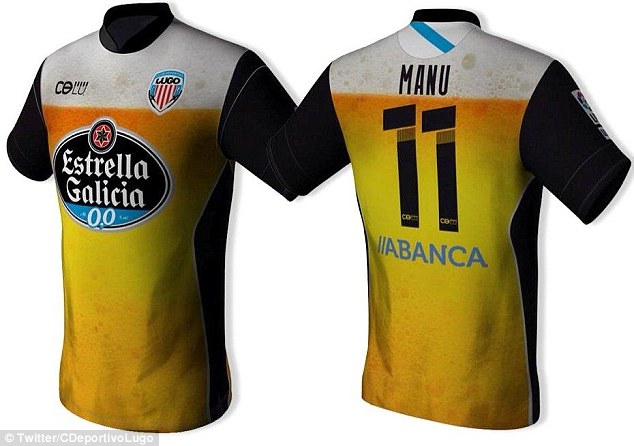 The number of articles and coverage they received
The number of articles and coverage they received
Kit Space
There is a wealth of unoccupied space on a football kit. Exploring options outside of the traditional single shirt sponsor beneath club badge and kit manufacturer logo can increase your team’s sponsorship revenue exponentially. Why not implement a system that sees you charge varying amounts for advertisement across numerous spaces on your team’s jersey? For example, why not approach 15 separate local businesses and offer them the chance to advertise their company name above one of the player’s numbers for a small fee. If you charged say £20 per shirt, this would see you raise £300 across a set of 15 kits alone. Not to mention the fact that it leaves the main sponsor slot open which can be used to generate further income that will facilitate the purchase of accessories such as tracksuits, equipment and footballs. Swedish side Mjällby AIF’s 2009 home shirt featured 13 different sponsors which didn’t include any that may have been displayed on the back. Very few clubs, both amateurishly and professionally, have implemented this tactic, being somewhat to their own detriment.

Not only can it maximise your revenue, but it can also create an interesting look for your club’s shirt which obviously has broad appeal for sponsors.
Team Name
Although a complete rebranding may appear a bold decision to make on a club’s behalf, there are a lot of perks that could stem from making such a choice. The continual use of a company name across all-league documentation that is viewed by a host of other clubs, managers, players and referees on a weekly basis offers a worthy return for the investor. For a club, the benefit is that the alteration would only be short-term. Rebranding for a season or two will not change the fabric of the club. In fact, it can provide a unique brand for which your team can own and flaunt its modification to great effect. Your side would be instantly recognisable to other teams in the division and possibly even within the local community too – something that can only work wonders for self-confidence. During the 1983-84 season, Coventry City chairman Jimmy Hill failed to change the sky blues’ name to Coventry Talbot as part of a deal with the Coventry-based car makers. He did, however, succeed in sending them out during a televised game wearing kits on which the Talbot logo was integral to the design – making it the first sponsored football shirt in the country.
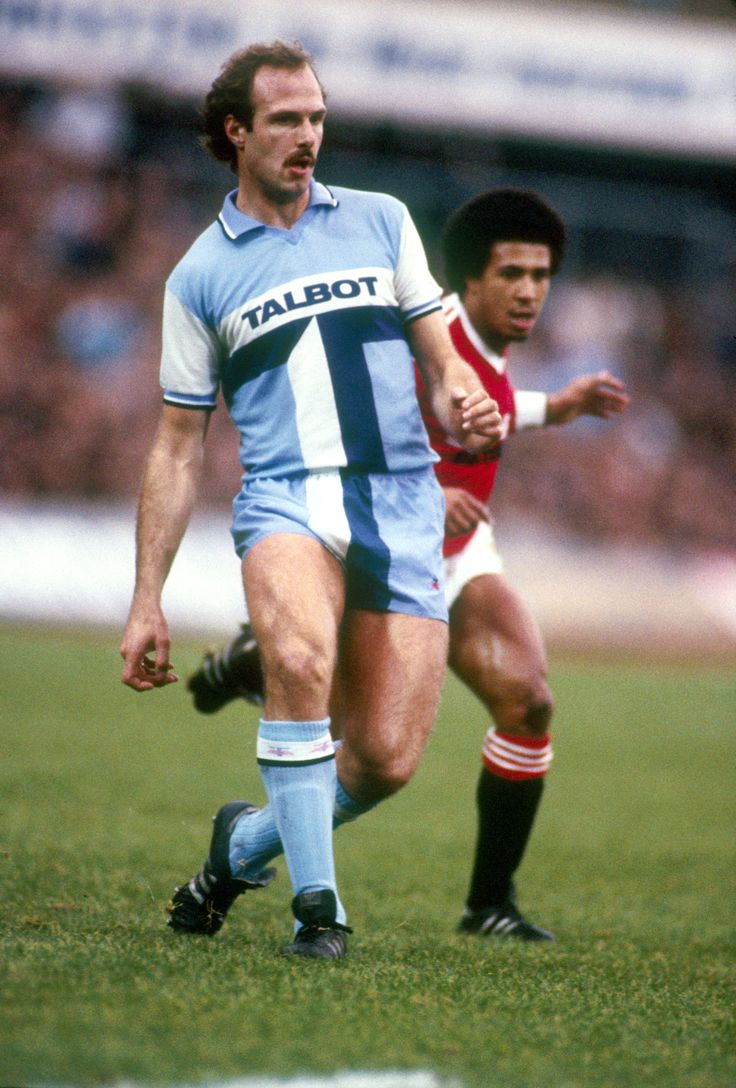
Self-Sustenance
This one is a knowingly cautious suggestion. Nonetheless, depending on your team’s age group and the size of the squad, your team and/or players’ parents could contribute a small amount to grant you self-sustainability. Not having sponsorship ties eradicates a lot of the hassle involved with what can prove an incredibly arduous process. There is also real appeal from a future investment point of view when it comes to this decision, too. An application looks far more impressive when a club can display tenacity and innovation in relation to covering its expenses. Your team will instantly become a more attractive proposition with this detail on your CV. This model is, however, becoming increasingly difficult to endure which has caused it to become less common as the years roll by. It truly depends on the circumstances of your club to determine whether this is a feasible option or not.
Offer Real Value
Going above and beyond for a business you are seeking finance from is standard practice. You have to consider that a deal should be worthwhile for both parties involved. And this means acting within your means. But don’t immediately worry. This does not categorically spell disaster. You’ll be surprised at how much a little goes a long way. If, for example, you approach a local car dealership, offering your players to participate in a charity car wash could be a meaningful gesture. This increased level of engagement could lead to amplified sales for the company, thus killing two birds with one stone. Here are a couple of simple-yet-effective ideas to help you land a sponsor:
- Referral Fees – Whoever decides to sponsor you is expecting people involved with the club + other locals to use their services/buy their products based on the increased exposure. A way for your club to make extra revenue while giving added incentive to a potential sponsor is through a referral scheme. This would reward the club with a small percentage or fee for each sale made when the club is referenced. This extra revenue can help fund a host of supplementary pieces for your club from accessories to tournaments, or even an away kit.
- Sponsorship Packages – Composing tiered sponsorship packages that offer different incentives in exchange for varied monetary contributions is a way to encourage multiple sponsors as a means of covering your expenses.
Receiving big press and securing sponsorship is more achievable than you believe, as one of our customers –
Lights, Korma, Action!
A FOOTIE team are hot stuff — after being sponsored by an Indian restaurant and NAMED after curries. The under nines have top spicy meals in the space for names on the back of their shirts. Manager John
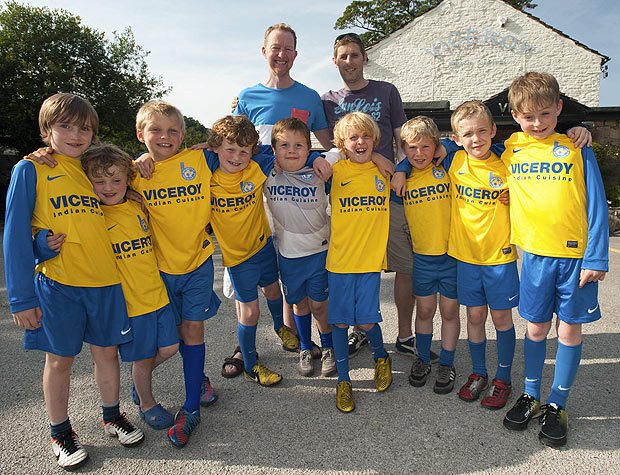
“My son Sam chose Bhuna — and we told Tom Boyd he’d be Vindaloo because he was such a hot striker. “I think they are all expecting to get free curries now.” Viceroy owner Abdul Rahim, 40, said: “This has turned into a really
How To Approach Your Potential Football Kit Sponsors
Some of the tips we’ve shared so far may not necessarily apply to your club. Others may be used loosely and expanded upon further. But when it comes to how you approach a business, there isn’t much flexibility. There are certain things that you must do to ensure your success in acquiring sponsorship.
Sponsorship Proposal Letter
Create a document that highlights who you are, how you started, where you’re based, what your club is about, what its aims and achievements are, why you need the sponsorship you’re asking for, and anything else you may deem suitable or worth mentioning. This formal piece can either serve as the driving force behind your campaign or as a supplementary doc used to instigate the first contact with any prospective sponsors.
Formal Contract
Drafting a formal contract is essential. Maintaining a high-level of professionalism towards your sponsors is non-negotiable. It is an area that is designed to refuse compromise. The contract should feature the company logo in the top corner and be printed on headed part to certify an exceptional standard. The real benefits of a formal contract, though, come from the guarantees it offers your club. Not only will it solidify a verbal agreement that has been made earlier, it will also ensure that your sponsor won’t opt out halfway through an agreed deal.
Who to Speak to
You should never speak to the receptionist about your proposal. Half of the battle is either won or lost in ensuring that your material finds the right person. Always target general managers, managing directors or directors when contacting businesses. Your efforts are otherwise useless if you fail to contact someone with the necessary level of authority/influence required.
Call Up or Visit
Email is a big no-no. Those that send out blanket emails to companies and are successful are the anomaly. It’s all too easy for these messages to be treated as spam or be ignored entirely. Instead, call up the company. If possible, visit them in person. This level of human interaction is guaranteed to offer a far greater chance of success over gambling alongside the countless other impersonal and forgettable emails these businesses receive.
Social Media Presence
Chances are your team is already active on social media. Why not go one better and start using these platforms to interact with the company you’re hoping to impress? It’s a simple icebreaker that is a sure-fire way to grab their attention and earn you some extra points in their good books.
Personalisation for Profile
The shirts we supplied for Bollington United are part of the Nike Classic kit that we supply to football teams across the country. The team’s colours are the Nike Classic IV University Gold/Royal Blue, a hard-wearing combination that comes in 10 different sizes, from Boys X Small to Men’s XX-Large. The shirts have a crew neck and mesh side panels and feature sweat-wicking DriFIT 100% polyester fabric to provide the best comfort and fit possible. One of the specialities we offer is the personalisation of kit, which is a service that Bollington United, amongst many others, have utilised. There are multiple ways that we can personalise your kit, dependent on your particular team’s needs.
Printing
We offer a printing service for the display of sponsors, squad numbers and player names. This unmatched service adds a strong level of professionalism embodied at a professional level which grassroots teams constantly strive for. With our increasing number of state-of-the-art printing presses, we possess the ability to print a garment every 90 seconds – a figure unmatched by any other similar service in the country.
Embroidery
Our embroidery is perfect for those looking to emboss their club’s badge onto a variety of different garments ranging from football kits to tracksuits to training wear. The embroideries are seamless and extremely durable no matter the usage. If sharing a cohesive image is what your club seeks, our embroidery can deliver this request. All personalisation is completed in-house by a dedicated and experienced team who deliver the utmost in quality, speed and efficiency. Have your own advice to share on how football clubs should go about seeking sponsorship? Leave your comments below!

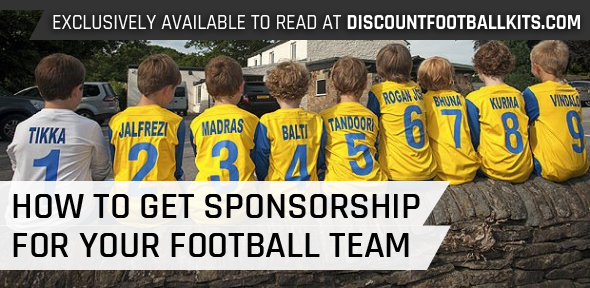
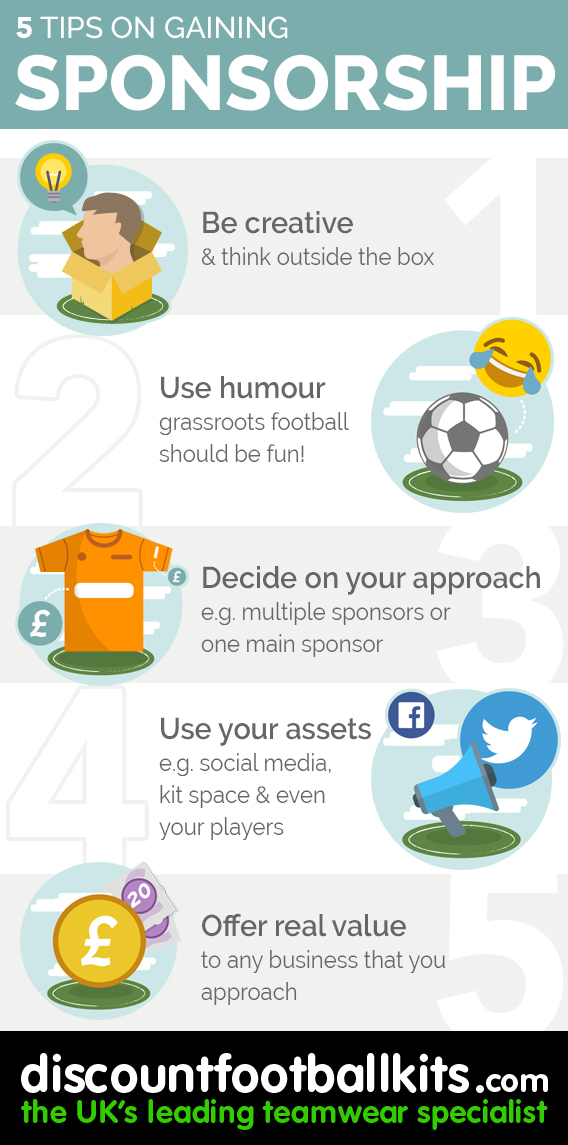



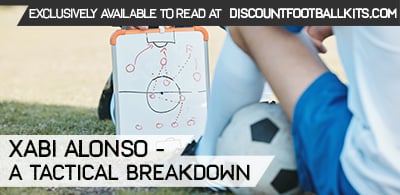

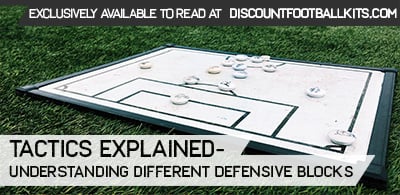

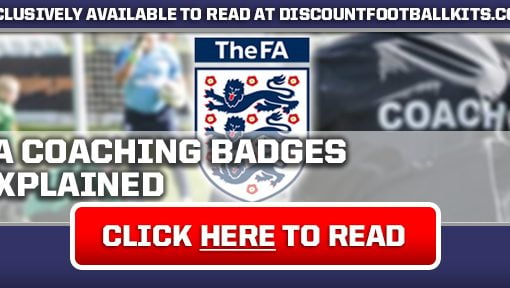
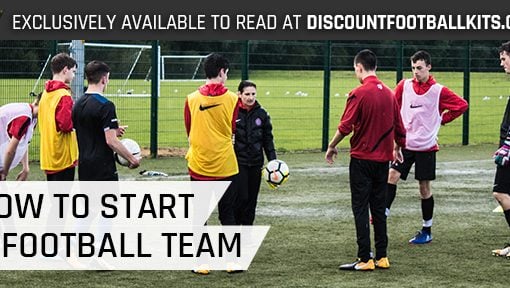
Thanks
Hi I am looking for a sponsorship and finding it so hard as the time we are in all places are closed? Any help I have an CIC company but all grants are stopped kids are going to start playing soon and I have 15 boys without no kits what an headache Kent based
Hi.>
I’m a coach for a u12 team in Fareham Hampshire we been supporting local boys/girls since 1977. we are Jubilee77 we have 2 teams at u12 one called Hurricanes the other is Tornadoes. We are looking for a sponsorship for the Hurricanes with your companies NAME LOGO and NUMBER on the front of there matchday shirts and the same on the back of there training tops and winter jackets . Hopefully this is of interest to you and your company
many thanks
Jubilee77 u12 Hurricanes
Ken (OZ) Osborne
Newcastle Blue Star reserves are looking for sponsors for next season. If any business would like more info, just get in touch for further details of what is available. This is an exciting time to be involved in the club. To find out more about the club if you wish to check before getting in touch, you can google Newcastle blue star or Newcastle blue star reserves. we are an established football club with our own stadium and stands, along with our own club house. please get in touch if you feel you would like to sponsor our football team.… Read more »
Trying to find sponsorship for a youth Pop Warner football team from the ages of 8-13 separated by two teams 8-10 11-13 yr olds our city streets are polluted with kids of these ages who have no scense of direction and no structure in there lives to be able to pursue these activities due to being in low income houses etc ..I have a great program set up that will allow inter city kids to enjoy structure and have fun in there communities without the fear of violence..
Trying to start up my a kids football team
Hi there i was wondering how can I get sponsorship cause I have started a team in that case I am planning to remove the kids on the street and to avoid them getting in the gangster life
I’m are soccer player I have 19yrs I need for a help I’m south Africa cape Town I come from Zimbabwe my position is center back my phone is 0619106187
[…] Read about the techniques of how to acquire sponsorship for your football team in detail here. […]
How do I got about getting a sponsorship and a new football kit for are team and they are call storm fc found is 2001
Hi Ryan, we’ve actually produced a guide on how to gain sponsorship >> https://www.discountfootballkits.com/blog/spicing-up-your-sponsorship-pitch/ and visit http://www.discountfootballkits.com for all the latest football kits for your team.
Hi Ryan,
I saw your post and wonder if you managed to find a sponsorship for your Team,
If not please send me some info about the team and i have a look into it for you and see if we can sponsor your team.
Regards
Ben
Hi my names joanne i saw your post and thought it wouldnt hurt to let you know i am looking for sponsorship for my under 11s league this is a new venture and i really want the kids to succeed but sponsorship is key to that happening. If your looking to advertise your business then my team is the one to do it for you. We are based in Hull and we can accomodate any logo you would like if your interested send me ideas, lets brainstorm kind regards
Hi Ben did you find a team to sponsor you or your company.
we are an 11 aside club and are still taking sponsors if you want more information i can provide too
Thanks
Andrei Meuse
Shaw FC
Chairman
Hi Ben,
My charity football club Essex Charity FC is also looking for sponsorship. We have gone into full detail over on our website if you want to see what you will get in return for sponsoring us: https://www.pitchero.com/clubs/essexcharityfc/news/sponsorship-opportunity-2528519.html
Kind Regards,
Newcastle Blue Star reserves are looking for sponsors for next season. If any business would like more info, just get in touch for further details of what is available. This is an exciting time to be involved in the club. To find out more about the club if you wish to check before getting in touch, you can google Newcastle blue star or Newcastle blue star reserves. we are an established football club with our own stadium and stands, along with our own club house. please get in touch if you feel you would like to sponsor our football team.… Read more »
Hi Ben, i know this may be a bit too late, but i was wondering if you were still willing to sponsor a team. the team i would love for you to sponsor is my five a side league team. we’re a team of school friends, that have formed a five a side team to participate in our local league. we record our matches and post them to my channel (link below) that has over 700 subscibers and over 200,000 collective views so this would definitely help with brand exposure etc. youtube channel: https://www.youtube.com/channel/UCVfmOXCZuHF-xIdKT_G2D5A i really hope that you are… Read more »
we are a football team which started in 1940s our main objective is nurturing young talents we would like to started a football academy could you kindly assist.
I am a coach and I want to open a football academy to help young people, this guide has really helped!
Wow we have a team but we lack a coach please help us
I what’s to join you
Sublime! thats very educational i noted some good tips. Thanks once more for sharing such knowledge with us.
Appreciate your comments Xolani! Glad you found the article useful 🙂